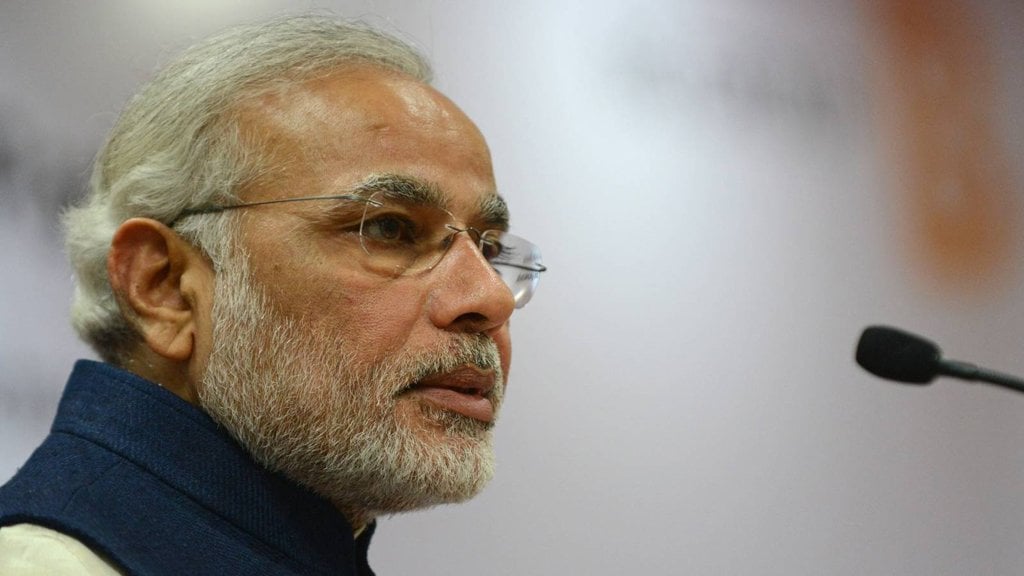
India’s new Prime Minister Narendra Modi has chosen a daring former spy with years of experience in dealing with Pakistan as his national security adviser, a move officials say signals a more muscular approach to New Delhi’s traditional enemy.
The choice of Ajit Doval, alongside former army chief General V K Singh as a federal minister for the northeast region, underscores plans to revamp national security that Modi says became weak under the outgoing government.
The two top-level appointments, reporting directly to Modi, point to a desire to address what are arguably India’s two most pressing external security concerns - Pakistan and China, both of which, like India, have nuclear arms.
Doval, a highly decorated officer renowned for his role in counter-insurgency missions, has long advocated tough action against militant groups, although operations he has been involved in suggest a level of pragmatism.
In the 1980s, he smuggled himself into the Golden Temple in Amritsar from where Sikh militants were later flushed out, and he infiltrated a powerful guerrilla group fighting for independence from India in the northeastern state of Mizoram.
The group ultimately signed a peace accord.
Doval was also on the ground in Kandahar, Afghanistan, when an Indian Airlines plane from Kathmandu was hijacked by militants on Christmas Eve, 1999. The crisis was resolved when top militants were freed in exchange for hostages.
“Doval is an out-of-the-box thinker,” said an Intelligence Bureau officer with long years of service in Kashmir and other Indian hotspots. “Expect him to shake things up.”
The official, who did not want to be named, said he expected the new security team to push for a rapid expansion of border infrastructure and a streamlining of intelligence services, which still function in isolation and often impede one other.
A secure India is a long-standing goal of Modi’s Hindu nationalist Bharatiya Janata Party (BJP), and the new prime minister himself wants strong borders so the country can focus fully on giving economic growth a much-needed boost.
He won the election largely on economic pledges that India’s 1.2 billion people hope will secure jobs and raise living standards. But with most foreign troops withdrawing from Afghanistan by the end of this year, India is concerned that militants fighting there will turn their sights towards the disputed region of Kashmir.
Doval, 69, formerly head of the Intelligence Bureau, will be National Security Adviser, only the second officer from the intelligence community to hold the post. By contrast, predecessor Shiv Shankar Menon is a member of the elite Indian Foreign Service - an expert on China and nuclear security known for his formidable intellect.
Doval did not say what his priorities would be after his job was announced on Friday, but in conversations with Reuters previously as head of a right-wing think tank in New Delhi, he said the new government must lay down core security policies, one of which was ‘zero tolerance’ for acts of violence. He was referring to the 2008 Mumbai attacks that brought tentative peace talks between the South Asian rivals to a juddering halt.
Modi’s other key appointment, retired general Singh, may inject new urgency into India’s plan to establish a corps of 80,000 troops along its border with China in the northeast.
A massive programme to build roads and upgrade airfields in the remote area was also cleared by the ousted Congress party, but has lagged. Singh is expected to accelerate the process through the defence bureaucracy, helped by a direct reporting line to the prime minister.
“Development of the northeast will be my top priority,” he told reporters after taking charge on Thursday. China claims more than 90,000 square km of land disputed by New Delhi in the eastern sector of the Himalayas, including most of Arunachal Pradesh state, which China calls South Tibet.
Published in The Express Tribune, June 2nd, 2014.
COMMENTS (11)
Comments are moderated and generally will be posted if they are on-topic and not abusive.
For more information, please see our Comments FAQ














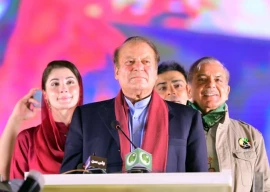

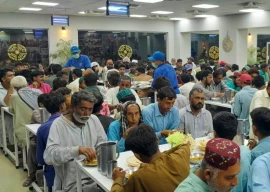
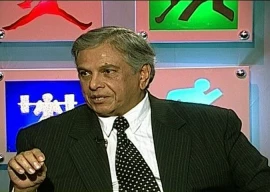

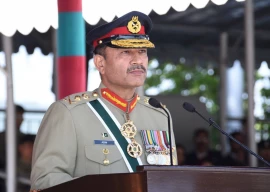











1714024018-0/ModiLara-(1)1714024018-0-270x192.webp)









Why have most of the comments from this thread disappeared?
Pakistan should raise this issue in UN.
@VINOD: In India Times website, it is written, that Modi talked Nawaz Sharif in tough way, and ask him to stop Terror attacks, Pakistan already facing Terror attack,how can be stopped its self...
With family business in mind Nawaz eyes India with his businessman son
A Criminal selected by a nation to whom it doesn't matter. Amazing!
@Muhammad Rizwan Ali: Give an example of Modi led India 'teasing' Pakistan please? The man has not even been PM for one full week yet!
@Muhammad Rizwan Ali: Read the article again. No one is teasing any body. Yes I am sure you will also agree that there must be zero tolerance for acts of violence and the country must have first class infrastructure. Sure as these are the basis of sound development And this applies to Pakistan also.
@Muhammad Rizwan Ali India is very good at multi tasking, we shall deal with all those problems and also deal with Pakistan
There are hundred of domestic problem Modi govt facing, they should solve those problems for their public, instead teasing other countries...
The retired General Singh actually contested on BJP's ticket. He has not been put in charge of defense miistry but rather Development. Of North East Reion(DONER). Thus he would have no role in deploying additional troops to the eastern front. Rather his task is to develop infrastructure in the north east - the absence of which not only poses serious security gaps for India in the Arunachal Pradesh area but also fuels resenment from the people who feel they are not getting a fair share in India's development and such resentment can take the form of undesirable insurgencies. The goal is thus to address legitimate concerns of people of North East and put someone in charge of DONER who actually understands that area well and knows the development challenges.